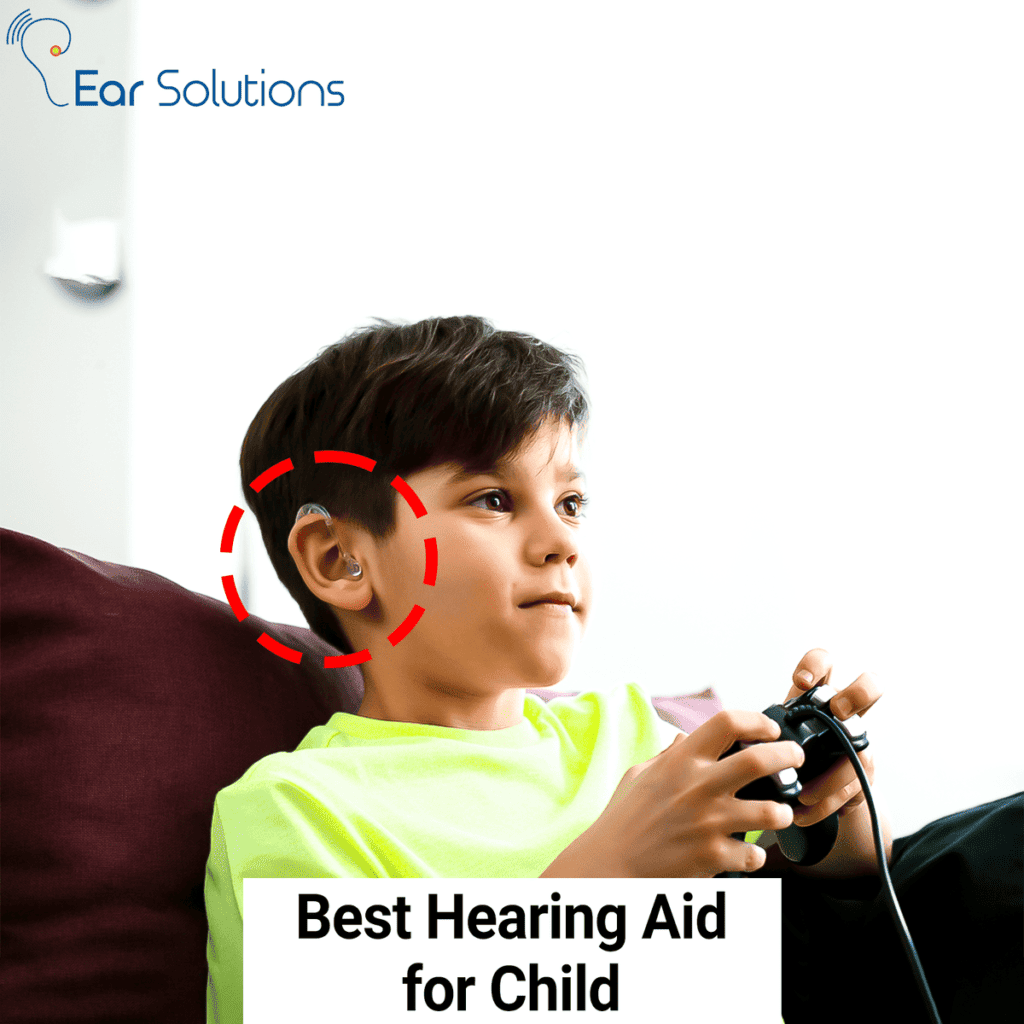Hearing is extremely important for children since it’s crucial to their development, which includes social interaction, academic performance, and speech and language development.
However, Hearing Loss in children can significantly impact their growth and well-being. It can lead to delayed speech and language skills, learning difficulties, social isolation, and emotional challenges.
Early detection and intervention are crucial in managing hearing loss in children to minimize its impact and provide appropriate support for their communication and development. One of the finest ways to help a child with hearing loss is using hearing aids.
In this blog, we will be discussing some of the Best Hearing Aid for Child. Also, some of the important aspects related to hearing loss in children will be discussed. For complete information on this topic, read this blog post through to the conclusion.
Common Symptoms of Hearing Loss in Children
Delayed speech and language development: Speech and language milestones may be delayed in a child with hearing loss, such as not babbling or speaking their first words at the expected age.
Difficulty understanding or following instructions: Child dealing with hearing loss may have trouble understanding and following spoken instructions.
Inattentiveness or lack of response to sound: Children with hearing loss may not react to loud noises or fail to respond when called by their names.
Speaking loudly or unclearly: Kids with hearing loss may speak loudly, have unclear speech, or mispronounce words.
Social and communication difficulties: Hearing loss can impact a child’s ability to communicate and interact with others, leading to social isolation or frustration.
Trouble hearing in noisy environments: Children with hearing loss may struggle to hear and understand conversations in noisy or crowded environments.
Academic challenges: Hearing loss can affect a child’s academic performance too, making it difficult to follow lessons, participate in class discussions, or read effectively.
Behavioral changes: Some children with hearing loss may experience behavioral modifications, become withdrawn, or show signs of frustration due to communication difficulties.
Ear-related complaints: Children with hearing loss may complain of ear pain, discomfort, or pressure, indicating ear-related issues.
Failed newborn hearing screening: Newborns are often screened for hearing loss shortly after birth, and if a child fails the screening, further evaluation for hearing loss is necessary.
Causes Behind Hearing Loss in Children
Some of the main causes of hearing loss in a child include the following:
Genetic factors: Children who suffer from hearing loss often have a genetic disorder that alters the shape or function of the ear.
Prenatal conditions: Infections or exposure to toxins during pregnancy can also be a reason for hearing loss in infants.
Birth complications: Difficulties during childbirth, such as a lack of oxygen or premature birth, can result in hearing loss in children.
Infections: Illnesses like rubella, cytomegalovirus, or meningitis can cause hearing loss if contracted during pregnancy or early childhood.
Noise exposure: Prolonged exposure to loud noises, such as loud music or noisy environments, can damage a child’s hearing over time.
Medications: Certain medications, such as antibiotics or chemotherapy drugs, can have ototoxic effects and can lead to hearing loss.
Head trauma: Hearing loss can also be caused by severe head injuries that harm the ear’s structural components.
Effective Treatments for Child Hearing Loss
When it comes to the Treatment of Hearing Loss in Child, Hearing aids are an effective solution. Hearing Aids amplify sounds, improve speech and language development, and are customized for a comfortable fit.
Hearing aids are programmed for individual needs and require ongoing support and follow-up. They can be complemented with communication therapy to enhance communication skills.
The process of fitting hearing aids for children involves a complete evaluation by an audiologist. Hearing care professionals will evaluate the child’s hearing abilities, conduct tests to determine the degree and type of hearing loss, and select the appropriate hearing aid model and settings. Modern Digital Hearing Aids are equipped with advanced digital technology, allowing for precise programming and adjustments to meet the specific needs of each child.
It is important to note that hearing aids for children require ongoing support and follow-up. Regular visits to the audiologist are necessary to monitor the child’s progress, make any necessary adjustments to the hearing aids, and ensure that they continue to provide optimal performance. The audiologist will also guide the proper care and maintenance of the devices.
Empowering Little Ears: Discovering the Best Hearing Aid for Your Child
Now comes the crucial section which is choosing the Best Hearing Aid for a Child. When it comes to choosing the best hearing aid for a child, several factors need to be considered, including the child’s specific hearing needs, age, lifestyle, and personal preferences. Here are some of the top hearing aid options that are often recommended for children:
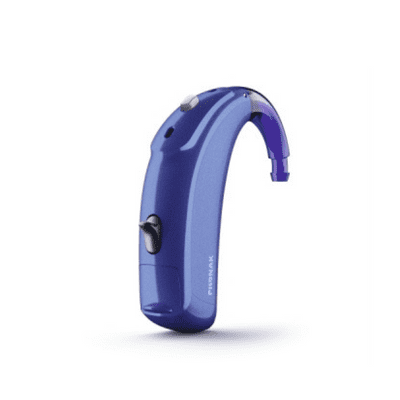
Phonak Sky Marvel:
Features clear and rich sound quality to help children hear speech and sounds more clearly.
Offers a wide range of connectivity options, allowing seamless integration with various devices.
Designed to be durable and resistant to moisture, making it suitable for active children.
Oticon Opn Play:
Utilizes advanced technology to provide children with access to a full soundscape, enhancing their speech understanding and cognitive development.
Offers personalized settings and features for different listening environments, such as school, home, and outdoor activities.
Includes child-friendly designs and colors to appeal to children and encourage consistent use.
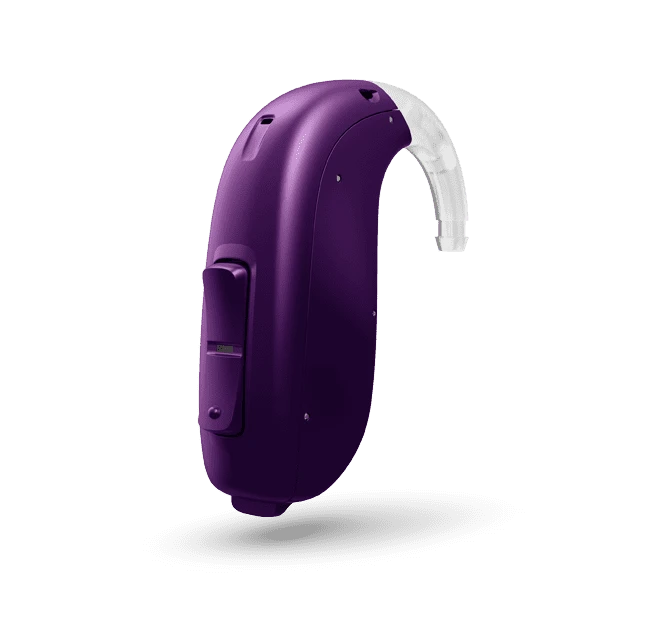
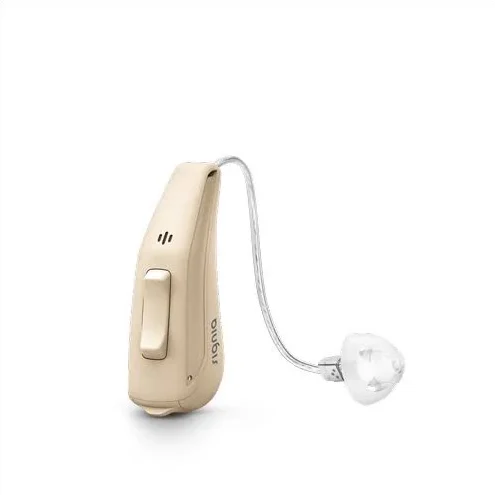
Signia Pure 312 Nx:
Features advanced sound processing technology to improve speech understanding and sound quality for children.
Offers connectivity options to stream audio from various devices, such as smartphones and TVs, directly to the hearing aids.
Provides remote control options, allowing parents or caregivers to adjust settings and monitor the child’s hearing aid performance.
Widex EVOKE:
Incorporates machine learning technology to adapt to the child’s listening preferences and optimize sound quality.
Offers a range of customizable programs and settings to accommodate different listening environments and individual needs.
Includes wireless connectivity options for streaming audio and controlling the hearing aids using compatible devices.
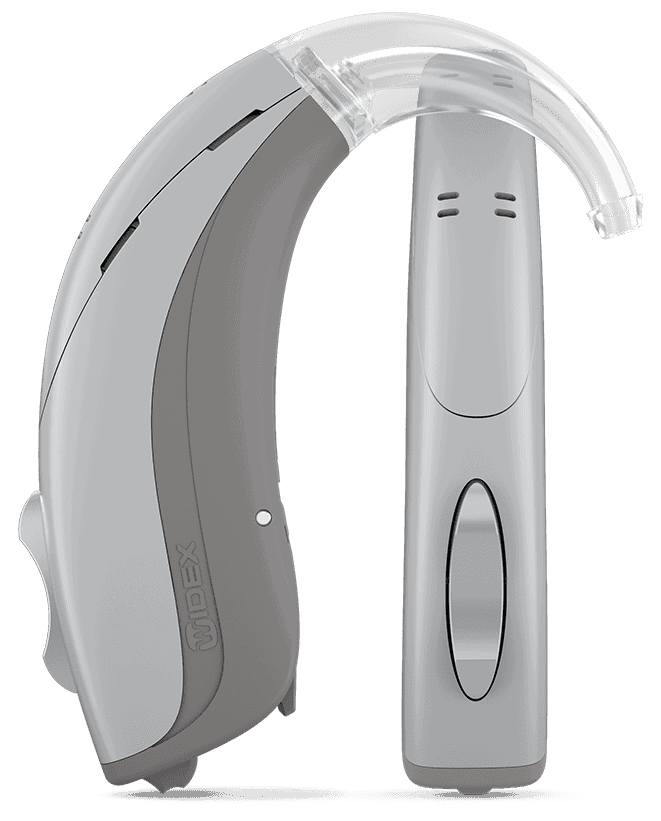
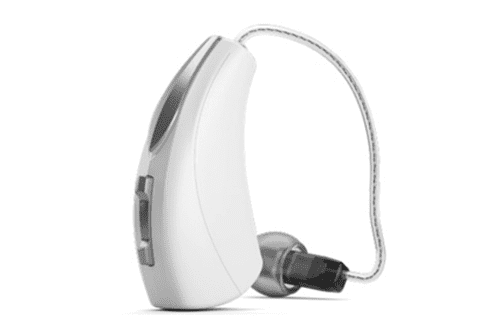
Starkey Muse iQ:
Provides exceptional sound quality and speech understanding, even in challenging listening situations.
Features advanced noise reduction and feedback cancellation technologies to enhance the child’s listening experience.
Offers wireless connectivity options and smartphone apps for personalized control and adjustment of the hearing aids.
ReSound Up Smart:
Designed specifically for children, with features that address their unique hearing needs.
Offers excellent sound quality, speech clarity, and feedback management.
Includes wireless connectivity options and compatible apps for parents to remotely adjust settings and monitor the child’s hearing aid usage.
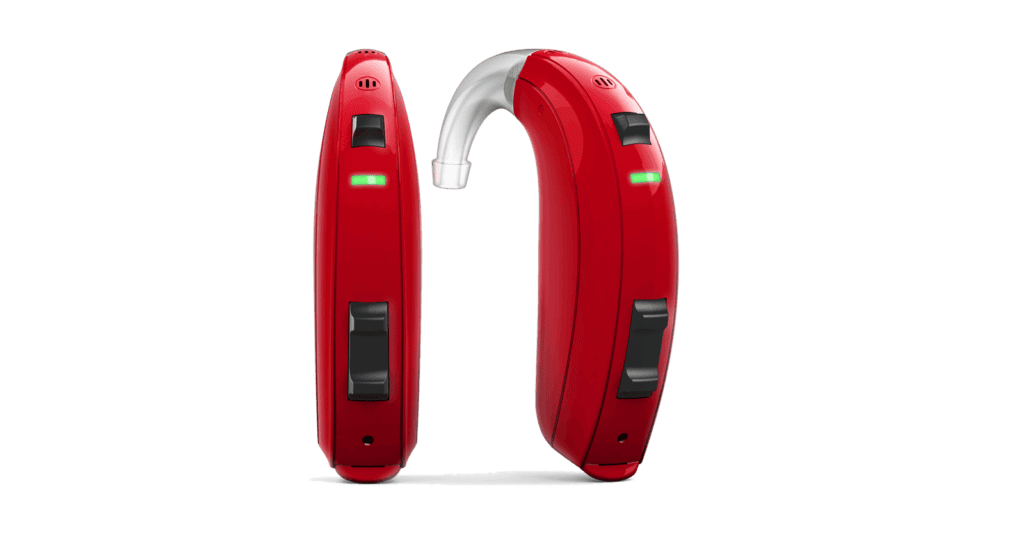
So, these were the best hearing aids for children available in the Indian Market. Hope all your queries regarding hearing aid for child must be solved after reading the blog.
It’s important to note that the suitability of a particular hearing aid may vary depending on the child’s specific hearing requirements and the recommendation of a pediatric audiologist.


